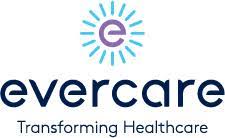Rights of Patient as Consumer in Medical Law
The CEO and CMD of Arth Diagnostics, Dr. Arvinder Singh has achieved success in many areas. He is an MBBS, MD (Gold Medalist) and the only postgraduate doctor in India to have received a Gold
The CEO and CMD of Arth Diagnostics, Dr. Arvinder Singh has achieved success in many areas. He is an MBBS, MD (Gold Medalist) and the only postgraduate doctor in India to have received a Gold medal for his MBA from IIM (Indore). Not only that but also holds a diploma from Oxford University (UK). Currently, he is pursuing law courses from National
Law University, Bangalore. He has a special interest in Alternative Dispute Resolution (ADR), which involves the settlement of legal matters outside court. Apart from that, he is also associated with the Chartered Institute of Arbitrator, London (U.K.) as an Associate Arbitrator. Moreover, he is a
Certified Commercial Grade Mediator, Business Negotiator, and an Arbitrator. Dr. Singh has profound experience as an entrepreneur and in the corporate world too. He owns Arth Diagnostics, Udaipur and working as CEO and Chief Pathologist. He has worked as the National Business Head and Vice
President in Dr. Lal Path Lab (Delhi) and State Business Head in Piramal Diagnostics (Mumbai). Dr. Singh has a special interest in Medical Law. He recently published the book “Doctors and Law”, focusing on rights and duties of healthcare professionals and patients. In the current scenario, the numbers of cases of medical law violation such as Medical Negligence, Medical Malpractice, Consumer protection, etc. are increasing rapidly. Unfortunately, currently there is no clarification on the legal process for
several medical cases in India Knowledge of medical law is important for both healthcare professionals and consumers. By following the rules of medical law, they can safeguard themselves in medico-legal cases.
In his book “Doctors and Law”, Dr. Arvinder Singh has described the rights of patients, the duties of doctors and hospitals and the rights of doctors.
The relationship between doctors and patient is very special, in which trust is a link. In many cases, doctors have to take important decisions towards patients.
At the time of going to the hospital, very few people realize that they have many rights and duties as a consumer, and they can take action when their rights are violated. The medical professional must also know the rights of the patient as a consumer so that they can follow the right principles of medical law. Important rights of patients are explained here.
Right to Privacy
The health care providers must respect a patient’s privacy. The health care
providers are obliged to keep all the information obtained during treatment as a professional secret.
Right to Be Informed
A patient has the right to receive information by health care professionals in the local language, or in the English language. Also, prior information about the cost of treatment should be given to the patient. On the patient’s request, the details of expenditure should be given in writing to the patient by the hospital. During treatment, a patient has the right to be informed about:
His/her health condition and probable development and consequences of a disease or injury,
The aim, type, treatment method and probability of success, expected benefits and results of the proposed treatment,
Potential risks, side effects, negative consequences and other disadvantages of the proposed treatment,
Other possibilities of treatment,
After giving the information, Patient’s consent letter with signature must be obtained and attached in the patient’s medical record.
Right to Emergency Medical Assistance
If a person is brought to a government or private hospital in a critical condition, then it is the duty of the doctors or hospital to provide immediate medical help without delay to improve the patient’s condition. After giving first aid, the patient can be transferred to the appropriate medical facility for proper treatment.
In Emergency cases, hospital management should arrange the transfer facility to the appropriate hospital. However, in the situation, where delay in providing first aid can be proved fatal for the patient’s life, the patient must be immediately referred/ transferred to the appropriate hospital without giving first aid.
Right to Take Second Opinion
The patient is free to take advice from any other doctor if a patient is not
satisfied with the opinion of a treating doctor or with treatment. In such a situation, the hospital should provide the patient’s medical and diagnostic report to the patients. Right to Choose Diagnostic Centre Or Medical Store –
The common complaint of patients is that in many hospitals when the doctors give a medical slip to the patient, they say that they should be tested in the same hospital and buy medicines only from the medical stores available in the hospital. However, this act is legally inappropriate. The consumer has the freedom to choose wherever they want to get tested and buy medicines.
Right to Make Independent Decisions
An adult competent patient can make a decision for himself or herself, he/ she may also refuse emergency medical assistance. However, parents or guardian may not refuse emergency medical assistance for a child. The same applies to patients with mental health problems. A patient is also free to select a doctor and health-care service provider.
Right to Access Medical Reports
Any hospital and doctor cannot refuse to give medical reports and records to the patient. The doctors should write the details of the patient’s initial condition, treatment method and opinion of other doctors or medical experts in the patient’s medical records. The patient should get a discharge record at the discharge time, in which the condition of the patient at the time of hospitalization, patient treatment details, results of lab tests, precautions to be kept after discharge, and how long the medicines should be taken, must be mentioned.
Medical law information is not only beneficial to patients but also helpful for medical practitioners. Often, doctors and hospitals are blamed for violating medical law. Due to the lack of information on medical law, they have to face adverse consequences, including cancellation of medical license, heavy fines, and imprisonment. It is important for medical professionals to know whether they are following the proper standard of care according to medical law or not.
Doctors and hospitals often face moral dilemmas where it becomes difficult to make decisions for the patient. In such a situation, by having knowledge of medical law, they can remain right side of law and can make the right decision according to the medical-legal rules





